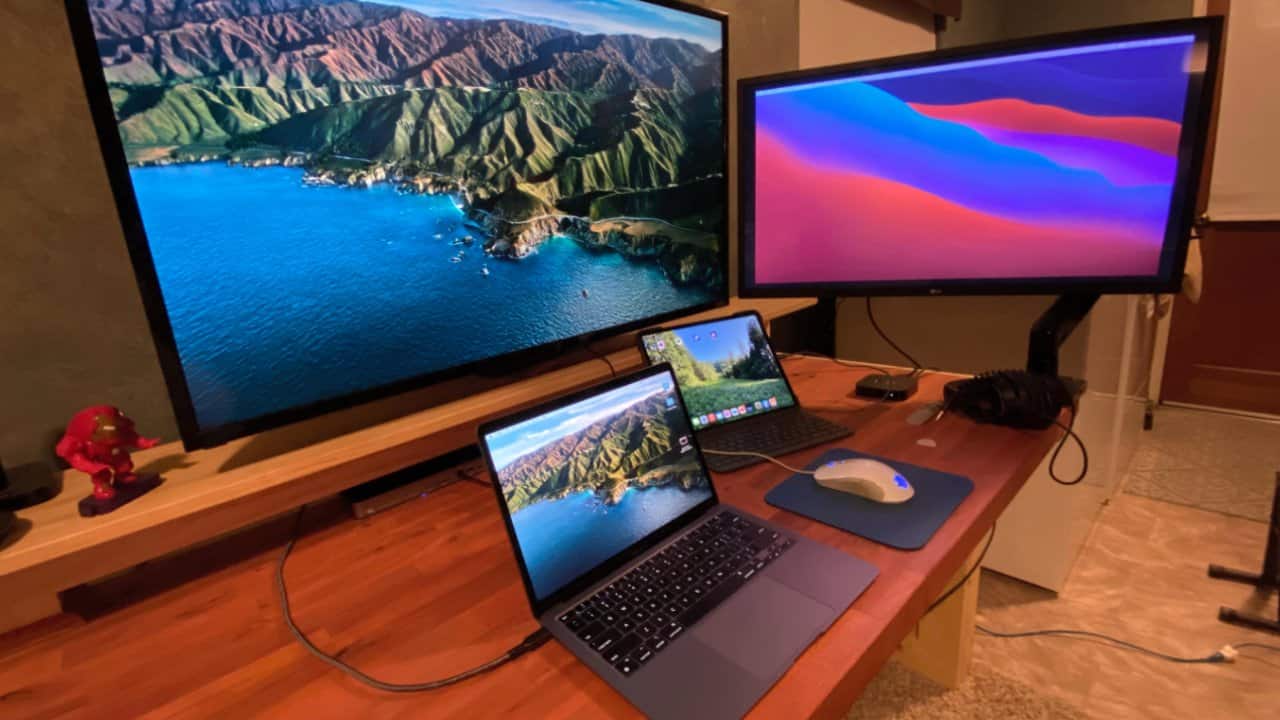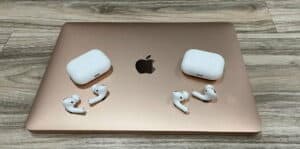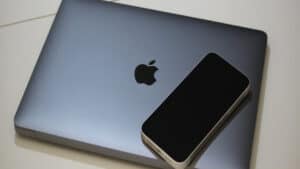How to connect MacBook to TV
Connect your MacBook to a TV, step by step

WePC is reader-supported. When you buy through links on our site, we may earn an affiliate commission. Prices subject to change. Learn more
If you want to get media from your MacBook on the big screen, you’ll want to know how to connect MacBook to TV.
A MacBook has enough storage space to fit all your images, videos, and music. But, it does not match the large, high-resolution TV screen to watch those videos and movies. Modern TVs almost always have built-in wi-fi, making it very simple to connect a MacBook to one. Even if your TV isn’t the latest, there are usually many options for connecting your MacBook with a cable.
There are multiple reasons you want to connect your MacBook to a TV. People often use it either for gaming, streaming movies or shows, work-related stuff, and much more. It is really cool that you have two to three different options through which you can connect your MacBook to a TV.
This article will walk you through the steps required for connecting your Apple MacBook to your TV.
How do I connect my MacBook to a TV?
There are many different ways to connect your MacBook to the TV. We will show you the three main ways you connect your MacBook and all three methods are pretty easy to follow.
Using AirPlay
Step
Go to Settings > Displays
Go to Settings > Displays on your MacBook.
Step
AirPlay Display
Choose the AirPlay Display option from the dropdown menu.
Step
Select TV
Select the smart TV you want to use as your MacBook’s display.
Step
Establish connection
Your smart TV will show a little window after the connection is established.
Step
Gather Windows
Choose Gather Windows to bring all of your apps together and expand your screen if you wish to use your TV as a secondary display for your MacBook.
Then, you can operate your TV as a laptop monitor.
Step
Optional: mirror display
Alternatively, to mirror your MacBook display to your TV, go to your display settings, pick an arrangement, and then select Mirror Display.
Using HDMI cable
You can still use the traditional method to connect your MacBook if your TV doesn’t support the wireless pairing. The ports on your laptop and television will determine how you do it. The ideal cable to use is an HDMI cable. This transmits sound and video, which is useful if you want to watch a video or listen to music on your TV. You can use either an HDMI 2.0 or an HDMI 2.1 cable, for connection purposes it doesn’t make a difference.
Step
Connect HDMI to MacBook
Connect one end of your HDMI cable to your MacBook.
Step
Connect HDMI to TV
Connect the other end of the HDMI cable to your TV.
Step
Find the right source
Click the source button on your TV and choose the right HDMI cable / channel from it.
Using media server
You can also configure your MacBook as a media server in other ways. You can install specific apps, like Kodi and Plex for this on your MacBook, smart TV, or Apple TV. This is helpful if you have old DVDs or Blu-rays that you have ripped to a file type that your TV app does not support.
In other words, you give your television permission to use your MacBook. You can discover more details about the settings and software on the website of the service provider.
How to connect MacBook to TV FAQs
How can I pair up my MacBook with my Windows computer?
You must Install iTunes wirelessly to connect AirPlay devices to Windows. You can use an application like TuneBlade or Airfoil for streaming videos. There are various apps that help you screen mirror your MacBook, such as AirParrot, AirMyPC, AirServer, and X-Mirage.
How can I disable AirPlay from Apple?
Choose Mirroring > Turn Mirroring Off on your Mac. Go to the Control Center on the iOS device, then select Screen Mirroring > Stop Mirroring.
How to connect MacBook to TV : Final word
Now you know how to connect MacBook to TV, you can go ahead and watch some of your favorite films or any other kind of media without having to comprise on screen size. This is perfect for a movie-watching night. Don’t forget to take a look at our other MacBook, laptop, and TV guides.





